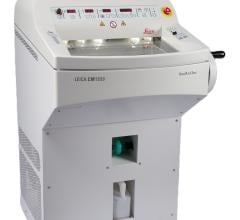
November 24, 2021 — Radiologists can now register their practices to take part in the next-generation American College of Radiology Data Science Institute artificial intelligence (AI) federated learning program hosted on the AI-LAB platform.
This free, vendor-neutral toolset allows users to “test drive,” develop and train AI algorithms at their institutions using local patient data. With federated learning, registered sites soon can participate in multi-site algorithm creation while allowing their data to remain safely on their own servers.
These sites will have access to both the community-created models and anonymized performance benchmarks so that they can understand performance of the algorithm produced by the greater clinical community to one that is fine-tuned to their own site’s data. This process will help them tune their own AI implementations to meet clinical needs.
“We as radiologists must take advantage of the new AI-LAB capabilities and leverage emerging opportunities to provide better patient care,” said Bibb Allen, M.D., FACR, ACR Data Science Institute chief medical officer. “The AI-LAB can allow radiologists to access resources to help them develop skills necessary to practice integrated diagnostics, become better physicians, and enhance the value we bring to patients and health systems.”
The AI-LAB process empowers radiologists to participate in AI creation, evaluation and validation, and meet coming responsibilities, requirements and opportunities in a future where AI will increasingly be used in daily practice.
“Radiologists must prepare to serve as the imaging AI experts, gatekeepers of which AI technologies are purchased by their practices, and monitors of AI performance in patient care,” said Keith J. Dreyer, D.O., Ph.D., FACR, ACR Data Science Institute chief science officer. “Not doing so is to risk patient safety and algorithm effectiveness. The new AI-LAB can help radiologists prepare for tomorrow’s reality.”
Get more information on taking part in AI-LAB federated learning.


 February 11, 2026
February 11, 2026 









